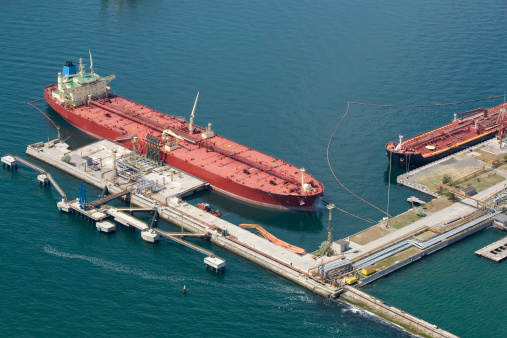The United States officially became the largest exporter of liquefied natural gas (LNG) in the world in the first half of 2022, according to CEDIGAZ, an international non-profit association based near Paris, and the U.S. Energy Information Administration (EIA).
New Infrastructure, Capacity
LNG exports from the United States increased 12 percent in the first half of 2022 compared to the second half of 2021, averaging 11.2 billion cubic feet per day (Bcf/d). Further, “installed U.S. LNG export capacity has expanded by 1.9 Bcf/d nominal (2.1 Bcf/d peak) since November 2021,” the EIA notes.
“The capacity additions included a sixth train at the Sabine Pass [Louisiana] LNG, 18 new mid-scale liquefaction trains at the Calcasieu Pass [Louisiana] LNG, and increased LNG production capacity at Sabine Pass and Corpus Christi [Texas] LNG facilities,” writes the EIA. “As of July 2022, we estimate that U.S. LNG liquefaction capacity averaged 11.4 Bcf/d, with a shorter-term peak capacity of 13.9 Bcf/d.”
Supply Follows Demand
The EIA also notes that along with increased export capacity the U.S. LNG export growth has been pushed by increased international LNG prices and increased global demand, especially from Europe, as the continent seeks “to compensate for lower pipeline imports from Russia and to fill historically low natural gas storage inventories.”
Nearly two-thirds of 2022 U.S. LNG exports, 64 percent, went to the United Kingdom and the European Union, an average of 14.8 Bcf/d, compared to 34 percent in 2021. U.K. and E.U. imports of U.S. LNG increased by 63 percent in 2022 over the second half of 2021. The United States now provides 47 percent of the European continent’s LNG imports.
Increased demand and limited supply are leading to higher gas prices, says Gary Stone, executive vice president of engineering at Five States Energy.
“Increased global demand has led to increased international natural gas and LNG prices,” said Stone, “Larger U.S. LNG export facilities and growing exports, coupled with traditionally low U.S. natural gas storage volumes, has led to historically-high domestic gas prices, currently hovering around $8.00 per MCF.
“With natural gas production increasing much slower than LNG exports, consumers should not expect a significant drop in natural gas prices in the foreseeable future,” said Stone.
‘Great News’
The LNG report is a bright spot for jobs and the economy, says Kenny Stein, director of policy at the Institute for Energy Research (IER).
“This is great news for both the U.S. economy and frankly for the much of the rest of the world,” said Stein. “LNG exports create jobs and encourage investment in natural gas development domestically and improve our balance of trade.
“For the rest of the world, U.S. LNG provides an alternative to supplies from dictatorial and aggressive regimes, with U.S. LNG export capacity proving crucial for Europe since the Russian invasion of Ukraine and subsequent limits on Russian gas supplies,” said Stein. “Rick Perry, I think rather tongue-in-cheek, called LNG exports ‘molecules of freedom,’ but that has rather literally been the case since Russia started its war.”
U.S. LNG Responds to War
June represented the first time the EU imported more LNG from the United States than Russia, with France, the Netherlands, Poland, Spain, and the United Kingdom accounting for more than 54 percent of total U.S. exports, according to the latest U.S. Department of Energy’s LNG Monthly report.
The oil and gas industry is rising to the challenge of meeting the America’s energy demand, says Daniel Kish, a distinguished senior fellow at IER.
“The U.S. became the world’s largest supplier of LNG because tens of billions of dollars were invested and hundreds of thousands of Americans rose to the challenge of meeting the growing need,” said Kish. “The U.S. has centuries of oil, gas, and coal, but the Biden Administration is working overtime to stop us from tapping our own God-given resources.
“With so many lives around the world depending on U.S. energy, America is a stronger and better place,” said Kish. “The only thing standing in the way of achieving even greater things is our own government.”
Tim Benson (tbenson@heartland.org) is a senior policy analyst at The Heartland Institute.
For more on LNG, click here and here.


























